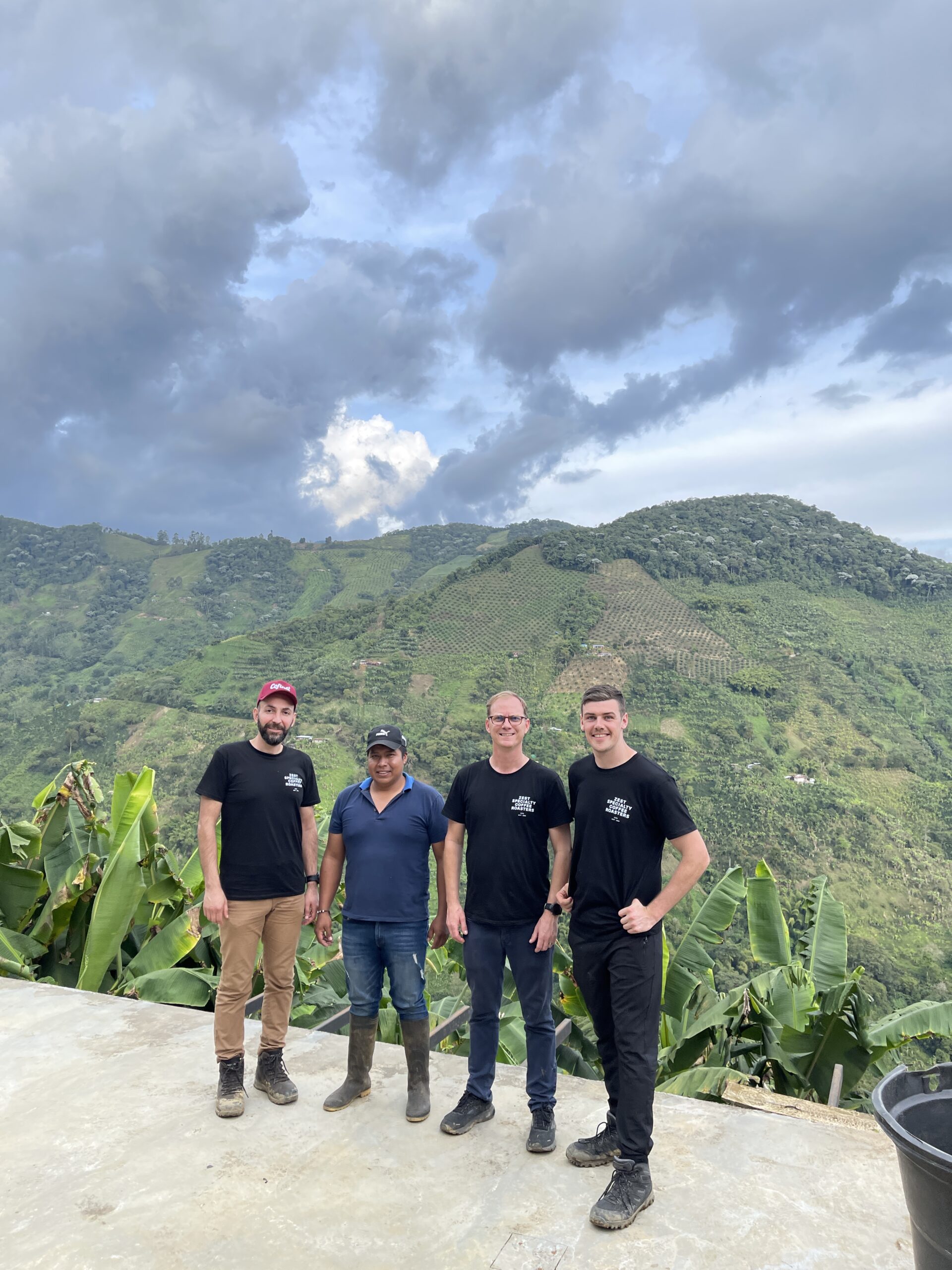

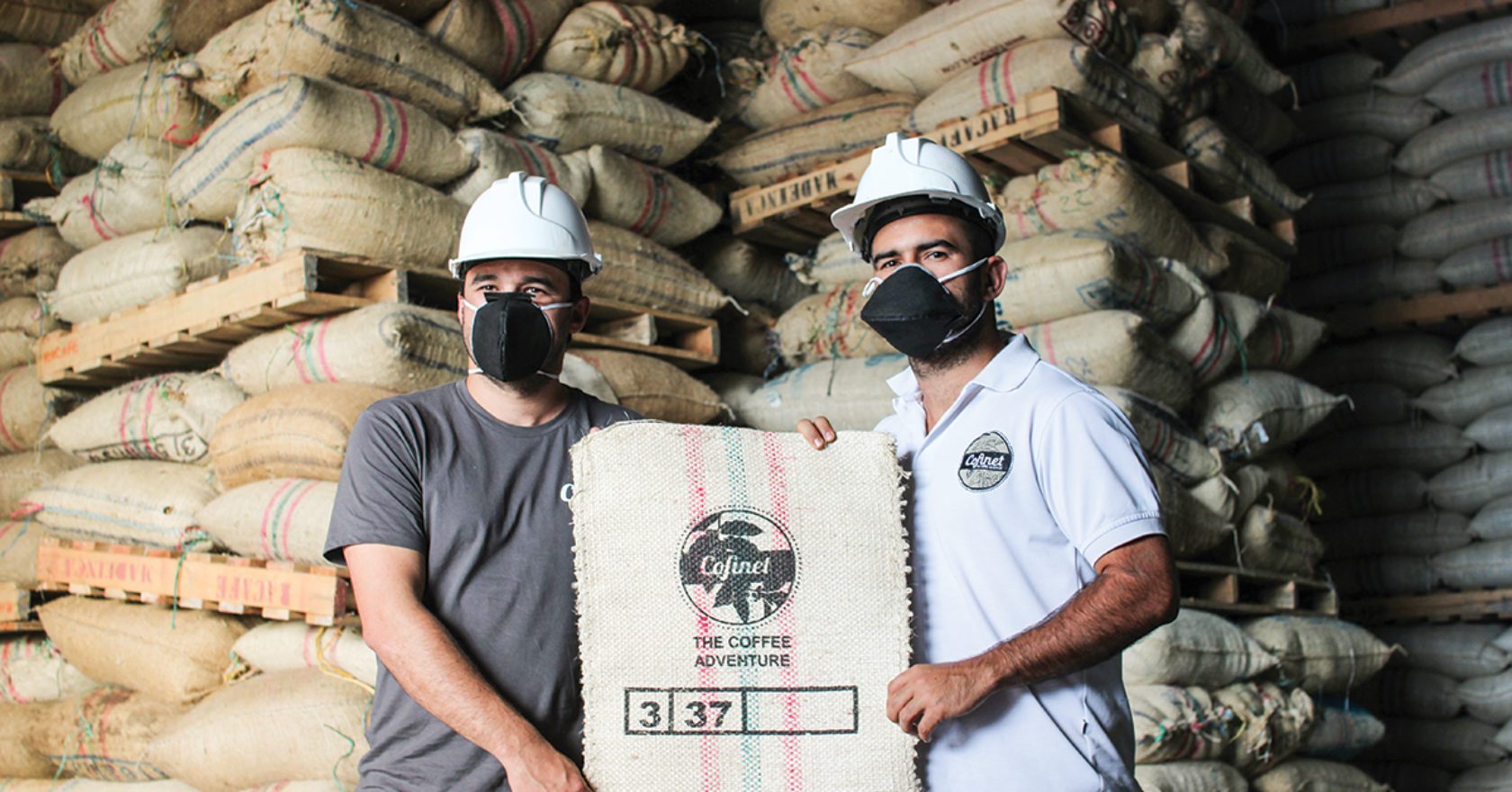

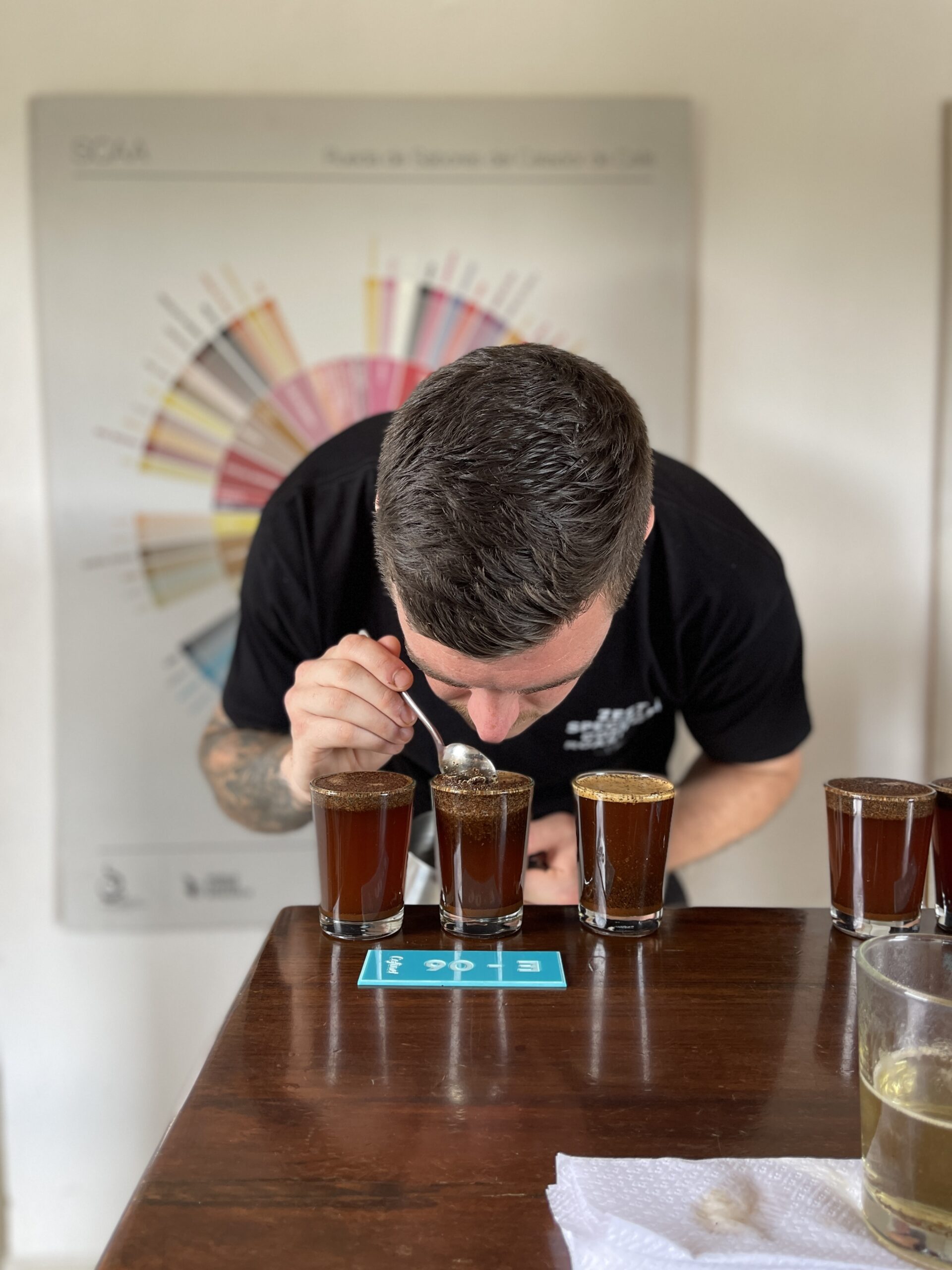

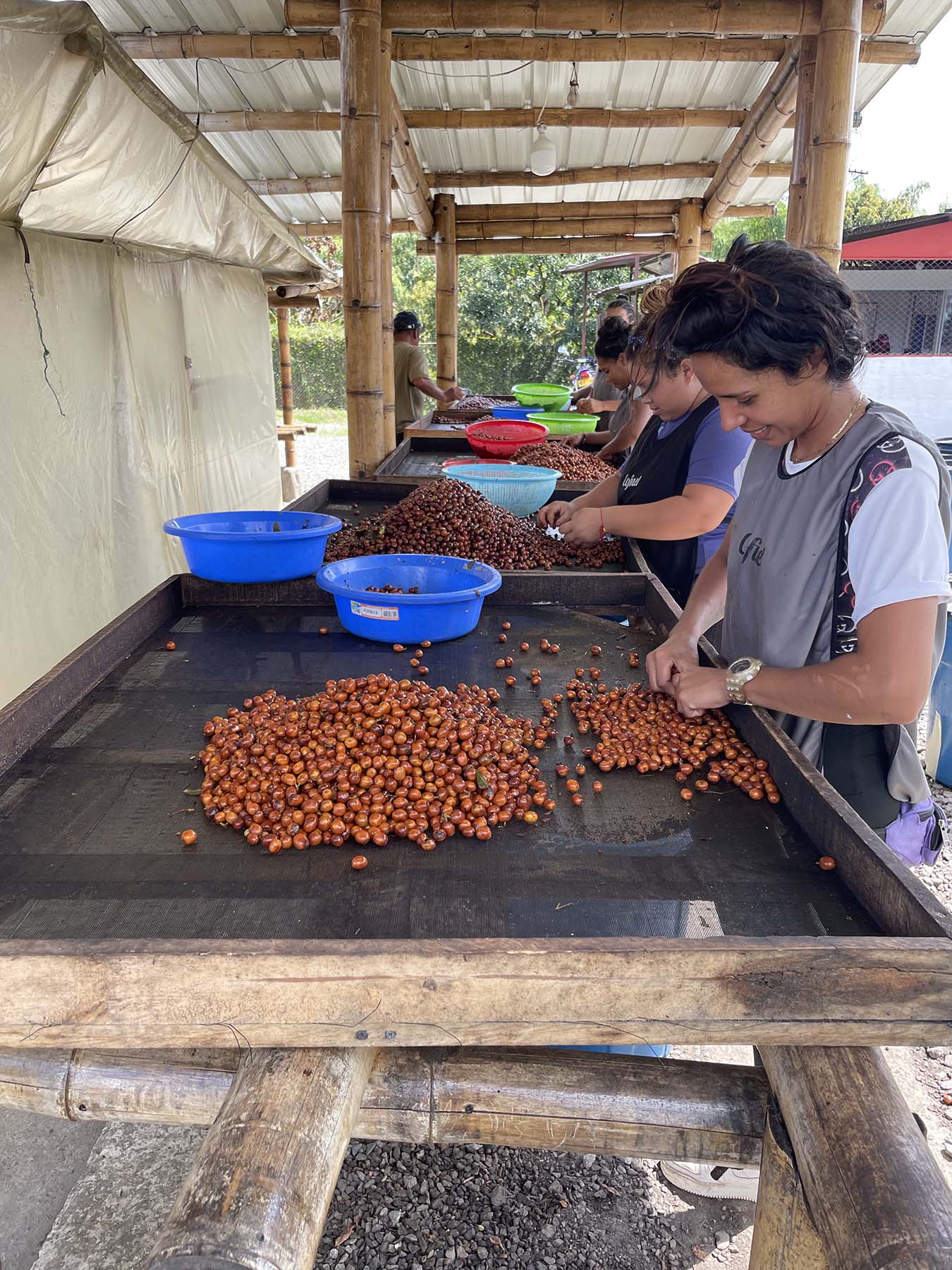

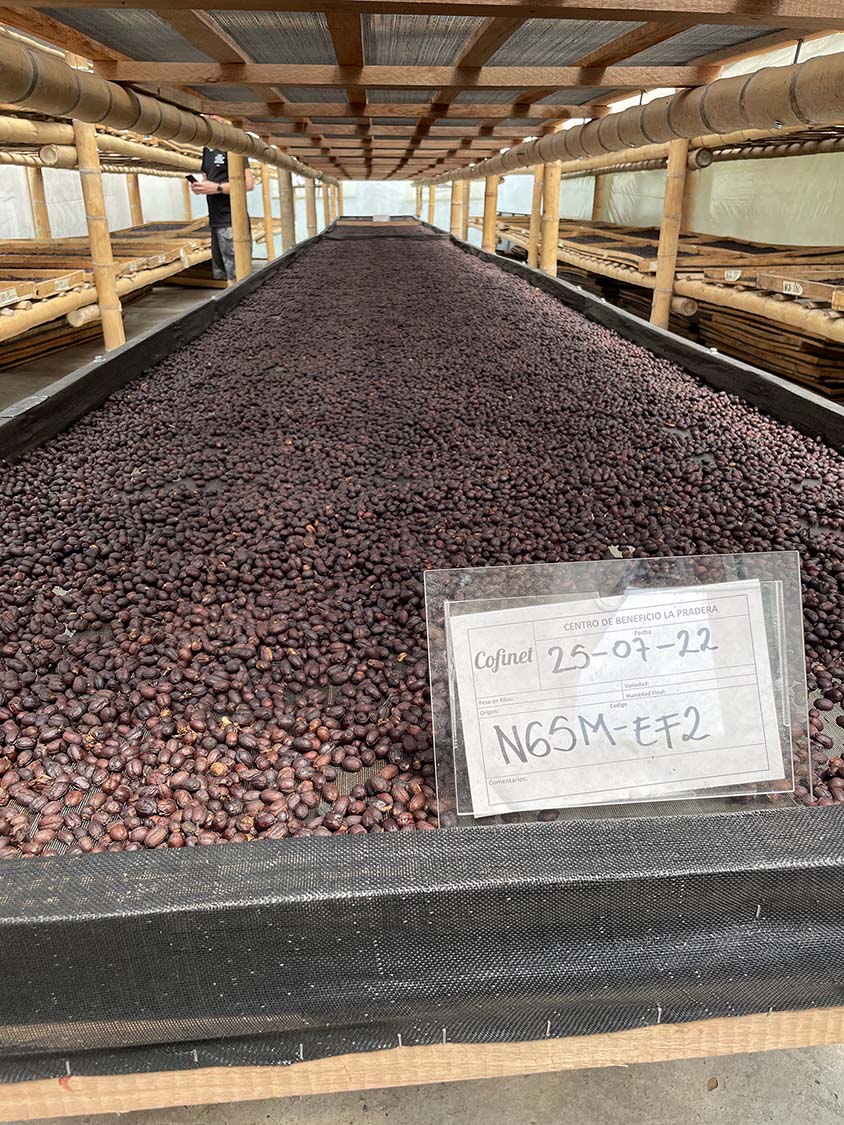

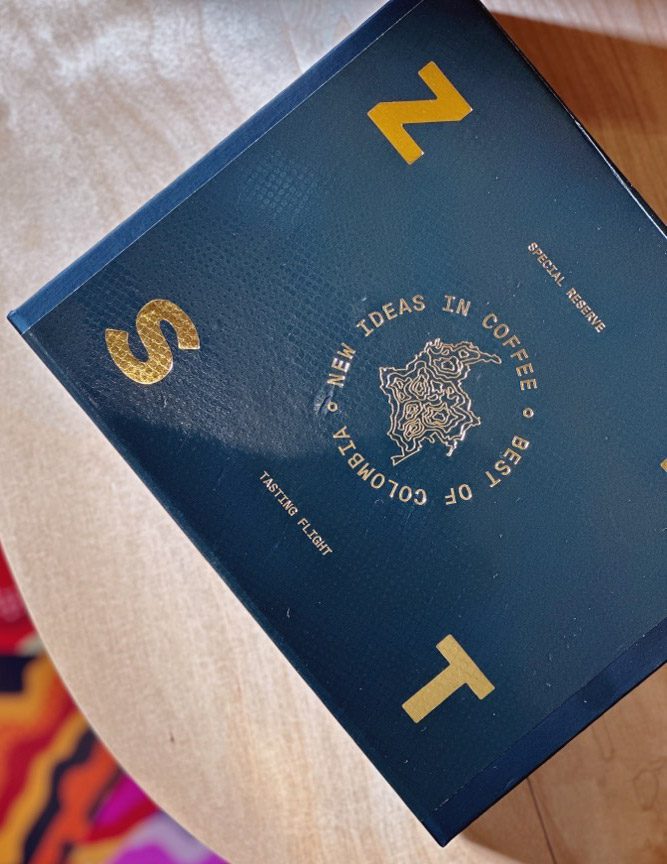

The fascinating flavour of fruit infused coffees in specialty coffee






A DEEP DIVE INTO THE SANTA MONICA SPECIAL RESERVE SERIES with renowned colombian coffee processors, cofinet.
This fruit-infused series marks another milestone in Zest’s collaboration with Cofinet, brining some of the most innovative coffee to the Melbourne coffee scene (and the rest of Australia). The series also pays homage to the Arcila family, who are the owners of Cofinet, who have been distributing some of the finest Colombian Coffees worldwide through their family business for years and are true innovators in specialty coffee processing.
(Jump to the end of the blog for a fun challenge 😉)
WELCOME TO SANTA MONICA AND JARDINES DEL EDEN
Two well-known farms owned by Cofinet are Santa Monica and Jardines del Eden. Both farms are located in the renowned growing region of Quindio in western central Colombia.
Besides the grape lot, all these coffees were cultivated on the Santa Monica Farm. It is situated at an altitude of 1450-1500 meters above sea level, with temperatures ranging from 18 to 28 degrees Celsius and annual rainfall between 1800 and 2000mm. The volcanic ash soil of Santa Monica, located just 34 miles from the stratovolcano ‘El Nevado Del Ruiz,’ alternates between lava, hardened volcanic ash, and other pyroclastic rocks. These unique terroir characteristics create optimal conditions for specialty coffee cultivation.
The Santa Monica farm covers approximately 60 ‘Cuadras,’ equivalent to around 38.4 hectares. They cultivate Castillo, Pink Bourbon, Papaya Bourbon, Geisha, and Chiroso. Currently, Chiroso and Pink Bourbon are the predominant lots on this farm. Additionally, the majority of their Castillo variety is exclusively allocated to Cofinet’s fruit maceration line, as they continue experimenting to identify the best fruit combinations for optimal results.
Jardines Del Eden, situated at higher slopes between 1700 and 1900 meters above sea level, used to grow the Castillo variety for the Grape lot. However, six months ago, the last Castillo crop was harvested, and the farm now solely cultivates exotic varietals.
ABOUT COFINET
Cofinet is a fourth-generation family of coffee growers involved in the cultivation and distribution of high-quality Colombian specialty coffee. What initially began as local distribution to exporters quickly expanded into production, sourcing, and global export. Today, Cofinet has offices in Australia, Singapore, New Zealand, Malaysia, UK, Europe, USA, and Colombia.
THEIR COLOMBIAN OPERATION
The Arcila family farm, La Pradera, is both their family home and an innovative processing center that plays a crucial role in Cofinet’s operations.
In addition to La Pradera, Cofinet owns other farms across Colombia and collaborates with local farmers. The coffee is grown and hand-picked on these farms before being transported to La Pradera for post-harvest processing. All of Cofinet’s coffee, including cherries purchased from other growers in different regions, undergoes processing at La Pradera.
ZEST’S RELATIONSHIP WITH COFINET
Carlos Arcila, brother to Jario and Felipe, resides in Australia. We are fortunate to have a direct relationship with Carlos, which helps us bring these exceptional coffees to Australian coffee enthusiasts.
In 2022, our coffee team visited La Pradera and received a guided tour from Freddy Gonzalas. During the visit, our team, including Aryan Aqajani, Leo Corser, and Damon Schmetzer, explored various Cofinet farms and sampled their diverse offerings. This memorable origin trip has enabled us to bring these captivating coffee lots to Australia.
COFINET’S PROGRAMS
PRODUCER INTERNSHIP
Cofinet offers a two-part Internship Program aimed at educating Colombian producers to achieve higher quality coffee.
During Part 1, producers spend six days at La Pradera, learning alternative fermentation methods for processing coffees. This hands-on experience allows the producers to taste their own work, something many of them haven’t done before. As part of the program, Cofinet also provides these producers with movable coffee beds to reduce the setup cost on their farms.
Part 2 of the Internship Program involves Cofinet visiting the producers at their farms to oversee the initial trials of the processes they have learned. Cofinet commits to purchasing the lots, ensuring there is no risk to the producers in experimenting with new methods.
WATER CONSERVATION
Cofinet focuses its efforts on 95% Naturals and Honeys, significantly reducing water usage compared to traditional washed coffees, which require 41 liters of water to process 1kg of dry parchment.
AGROFORESTRY
Cofinet operates a dedicated nursery for growing native trees, which are then shared with their producers. These trees contribute to the health of coffee trees by extracting nutrients from the soil and providing shade, creating a cooler environment that slows down ripening. Slower ripening intensifies the flavors in the crop.
INITIATIVES
Cofinet organizes educational events and cupping sessions with roasters to enhance their understanding of coffee growing, processing, and drying. These initiatives aim to improve roasters’ ability to communicate the complexity of coffee to their customers. Additionally, origin trips offer roasters an immersive experience in the daily lives of coffee farmers.
VARIETALS USED – CASTILLO & PINK BOURBON
Developed by the Federación Nacional de Cafeteros, Castillo is a hybrid of the Caturra varietal and the Timor Hybrid Varietal. This combination retains the cup quality of Caturra while benefiting from the disease resistance of the Timor Hybrid. Castillo is more productive than Caturra and highly resistant to coffee leaf rust. Currently, Castillo represents nearly 40% of Colombia’s coffee crop, making it the most common variety in the country. Its “dwarf” stature makes it appealing to farmers who prefer higher density coffee plantations.
Pink Bourbon is a naturally occurring hybrid between Red & Yellow Bourbon. The mutation is said to have happened in San Adolfo, Huila, Colombia. Bourbon is a challenging variety to grow due to its susceptibility to diseases. However, its unique flavor profile makes it highly sought after. Since Pink Bourbon requires farmers to isolate the seeds from Red and Yellow Bourbon, it is more difficult to cultivate. As a result, Pink Bourbon is a rare and highly prized varietal.
THE FRUIT INFUSION PROCESS
The real highlight of this series is the innovative fruit maceration process used by Jairo & Felipe Arcila to create these exceptional coffees. Jairo and Felipe’s goal for these experiments was to transfer distinct and bold fruit notes directly to the final cup. And they do! These incredibly distinct fruit flavor notes are achieved by adding real, wild fruit during the fermentation stage.
Each lot corresponds to a specific fruit: Red Fruits, Grape, Lychee, Lulo, Mint, and Peach. The coffee cherries undergo a dry anaerobic fermentation period of 72 hours with the pulp on. Dehydrated fruits mixed with wine yeast are then placed in grain pro bags together with the coffee for co-fermentation.
The wine yeast acts as an accelerator, promoting the efficient transfer of flavors by enhancing desired microorganisms and inhibiting undesired ones.
After 72 hours, the cherries are pulped and dried on raised beds until reaching the ideal moisture content. In the drying stage, the Red Fruits and Grape lots also include mashed fruit mixed with the parchment.
EXQUISITE COFFEES TO DELIGHT YOUR PALATE
Now it’s your turn to experience these exceptional coffees for yourself. Let them transport you to Colombia and the Arcila family farm. Try to visualize the fruit infusion process happening before your eyes. Now, savor the coffee. Can you discern those distinct fruit flavors?
Here’s a challenge for you. All you need is a Santa Monica Tasting Box, a fellow coffee enthusiast, and your preferred brewing method. Brew each coffee and challenge your friends to a blind tasting. How many coffees can they (or you) correctly identify?